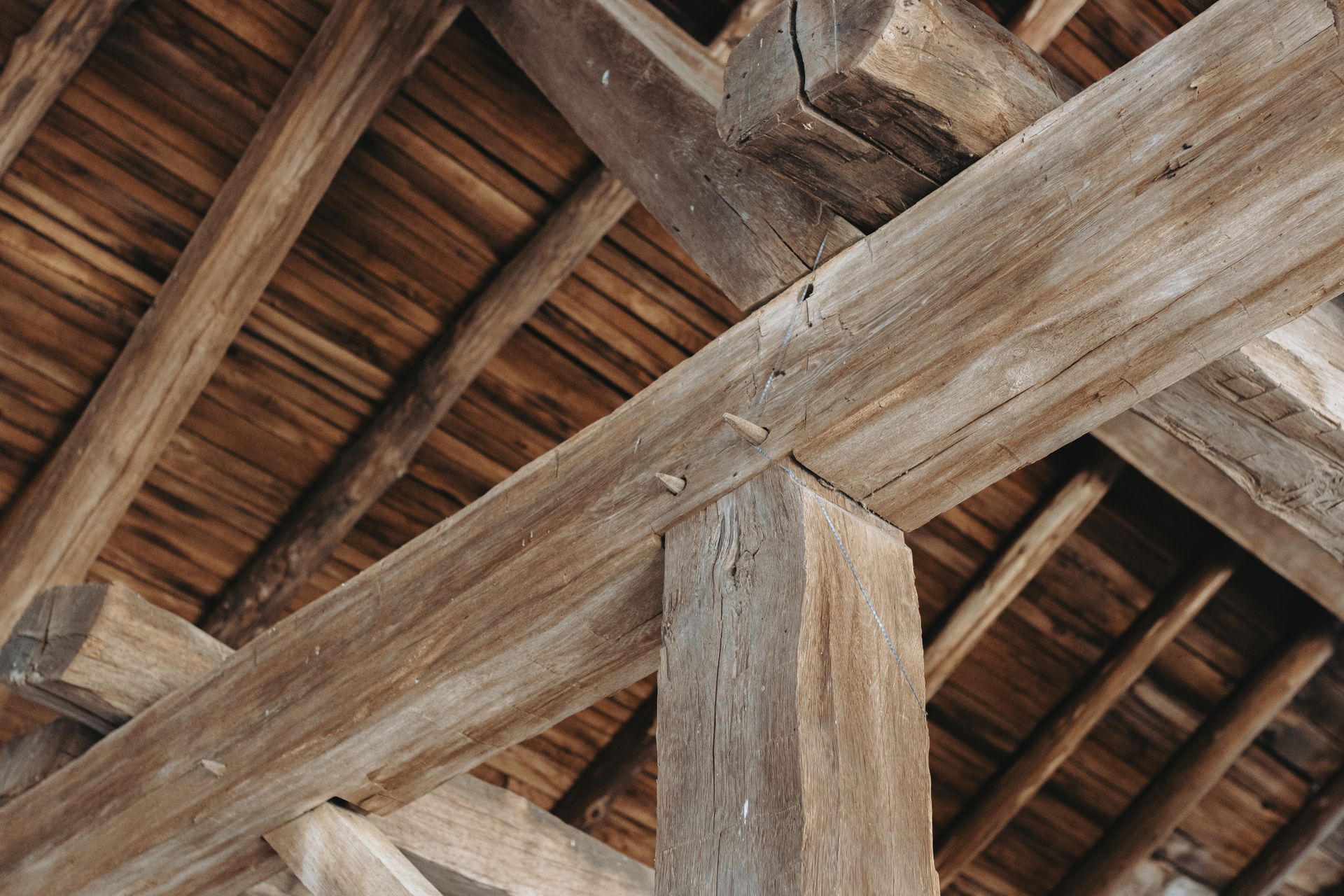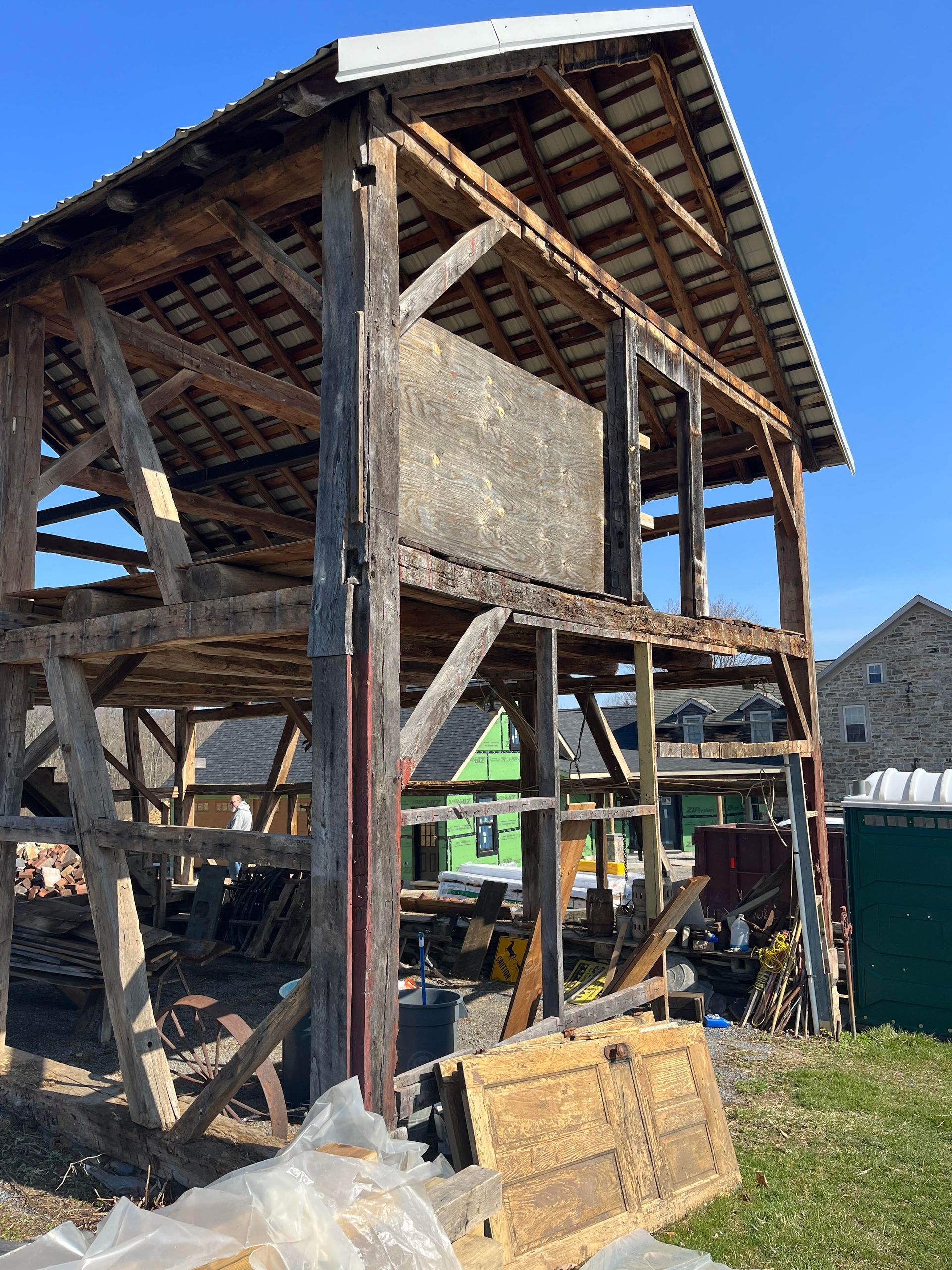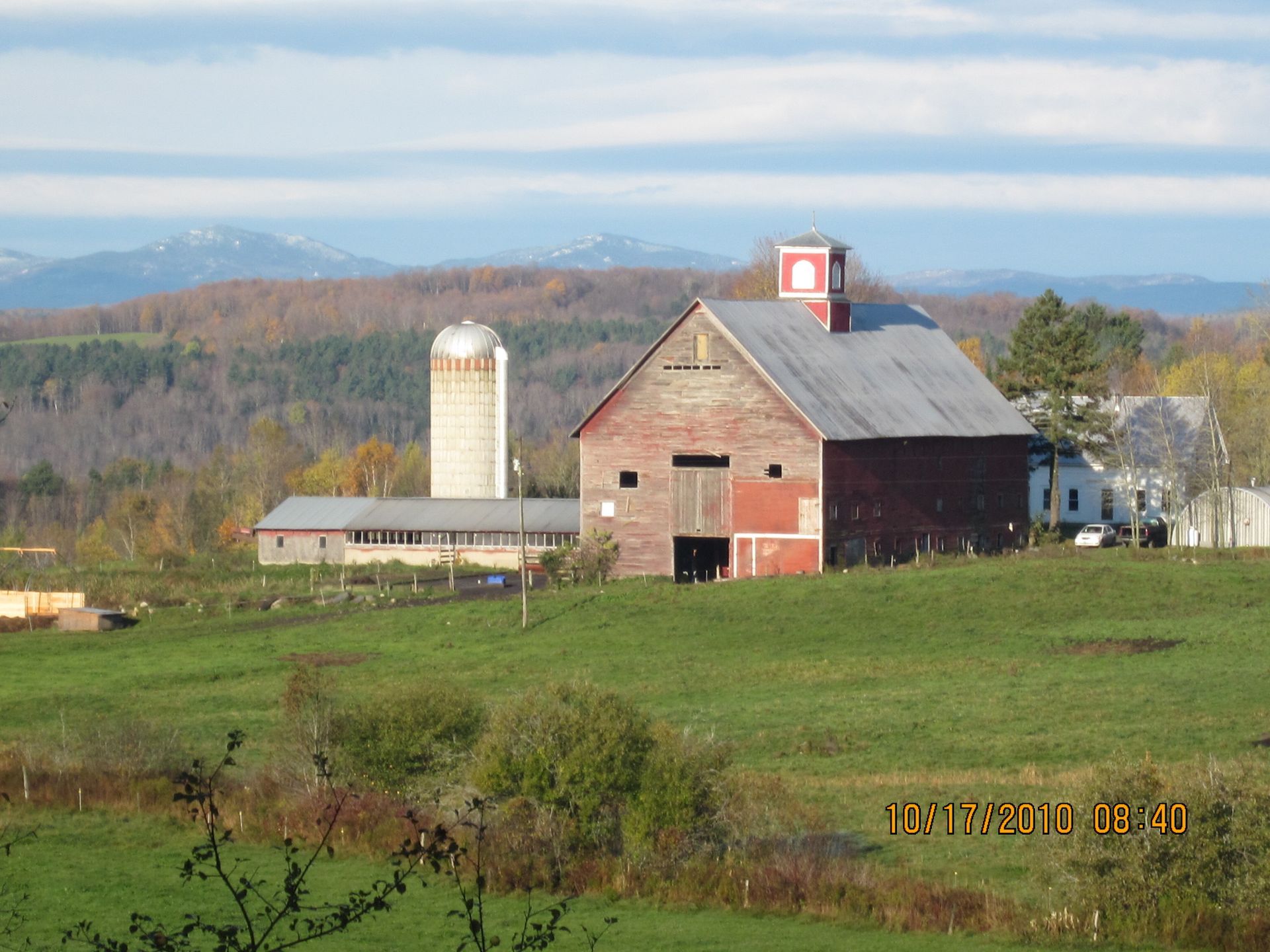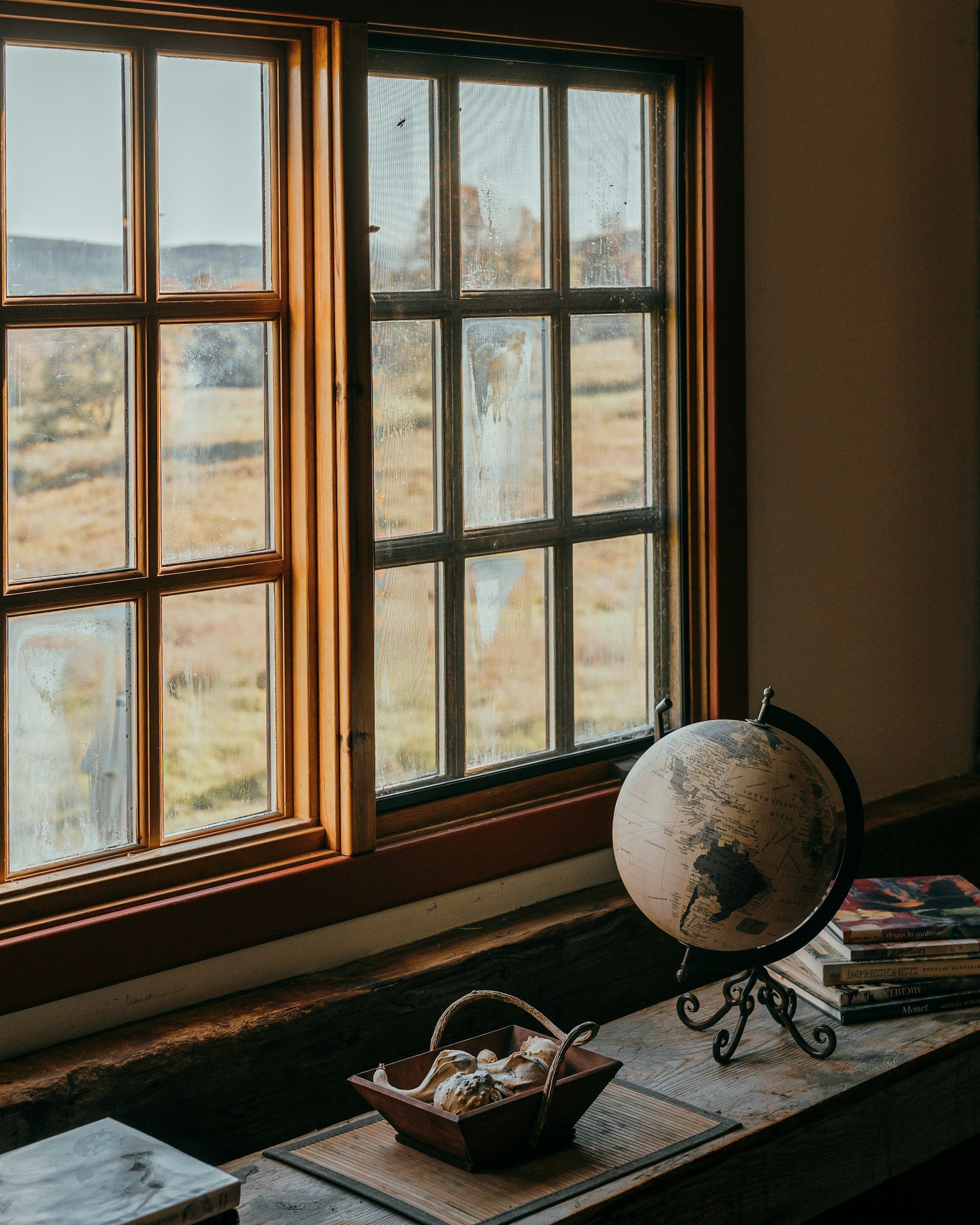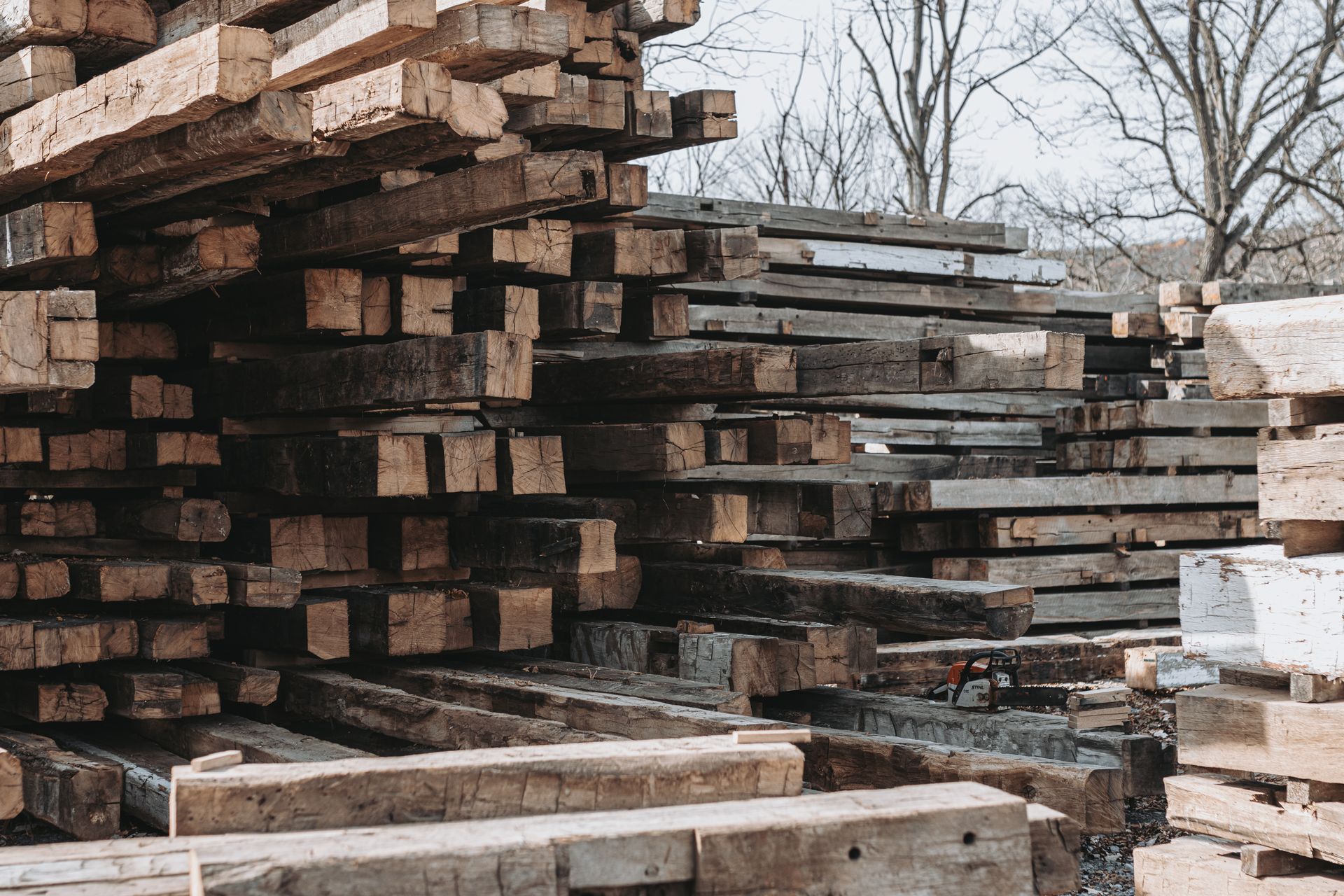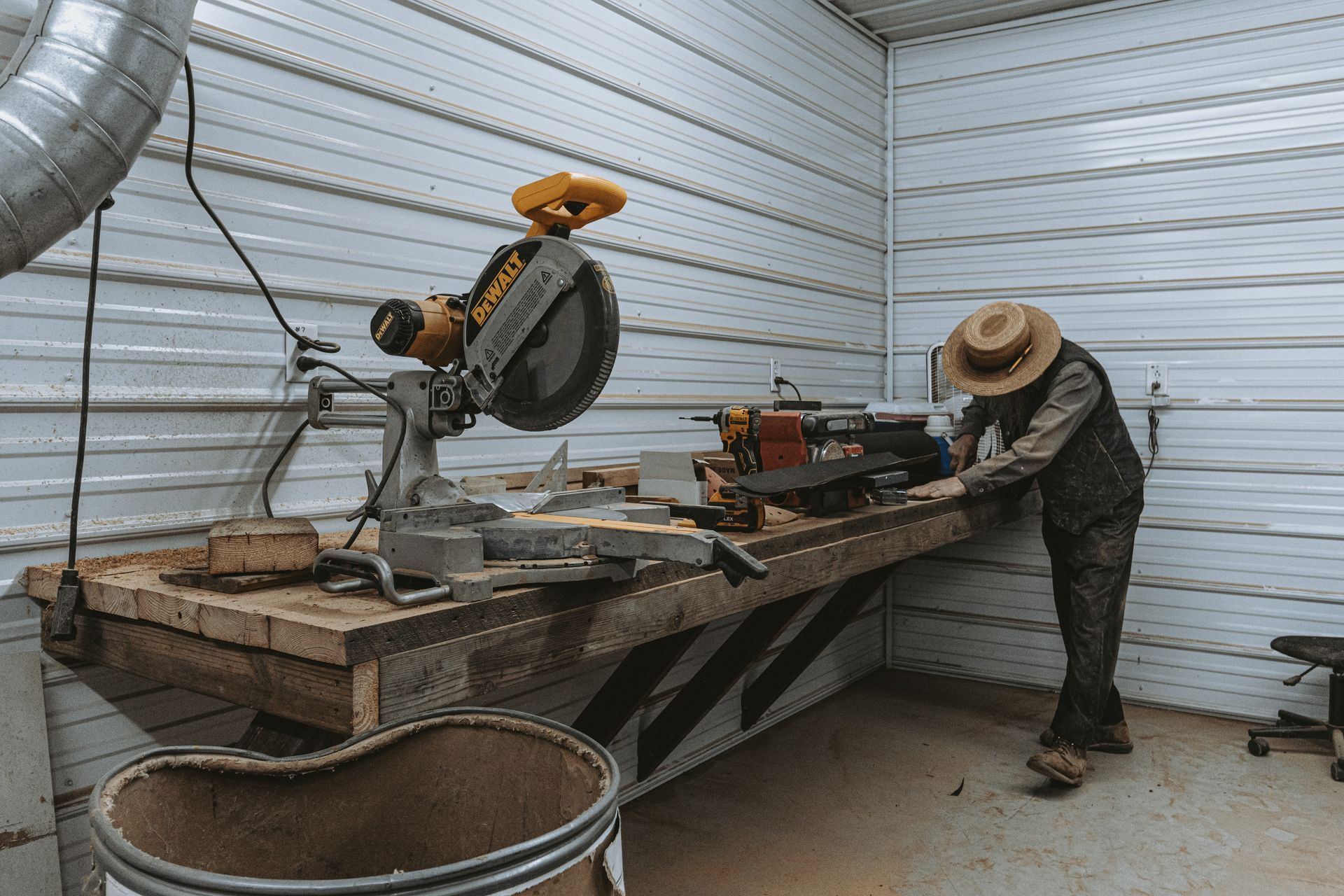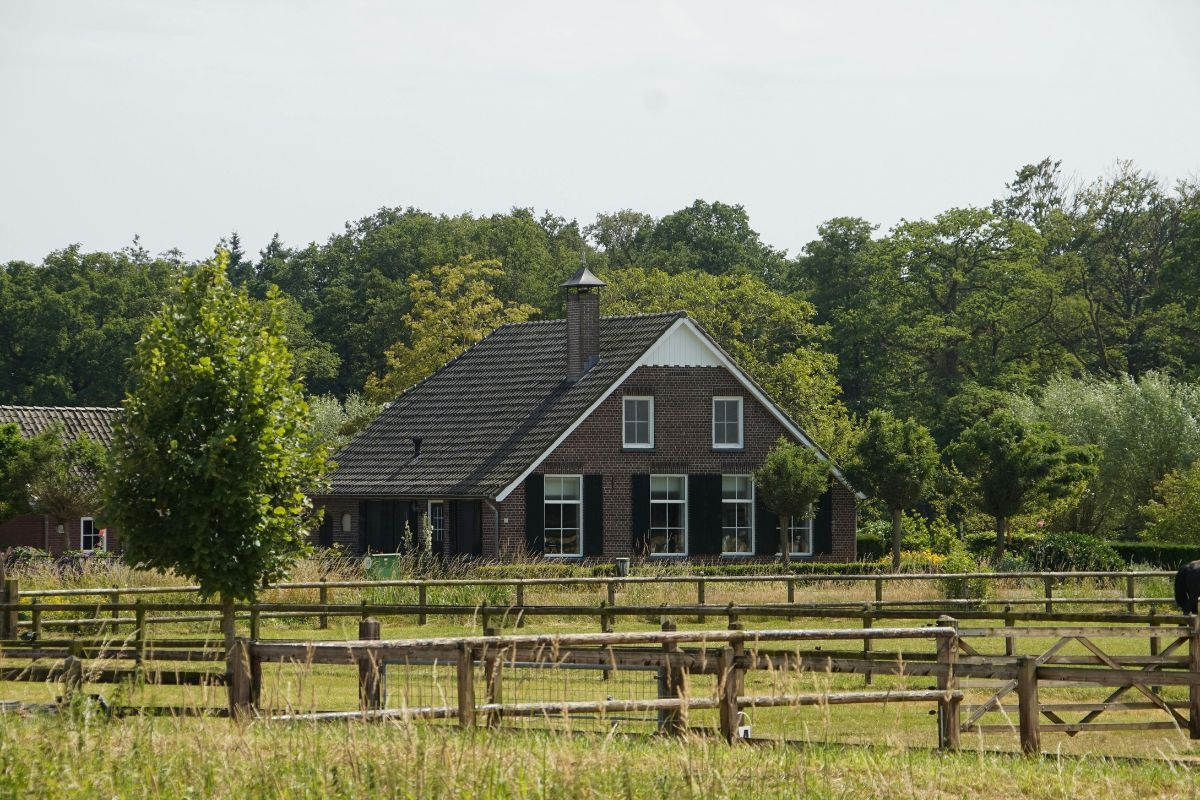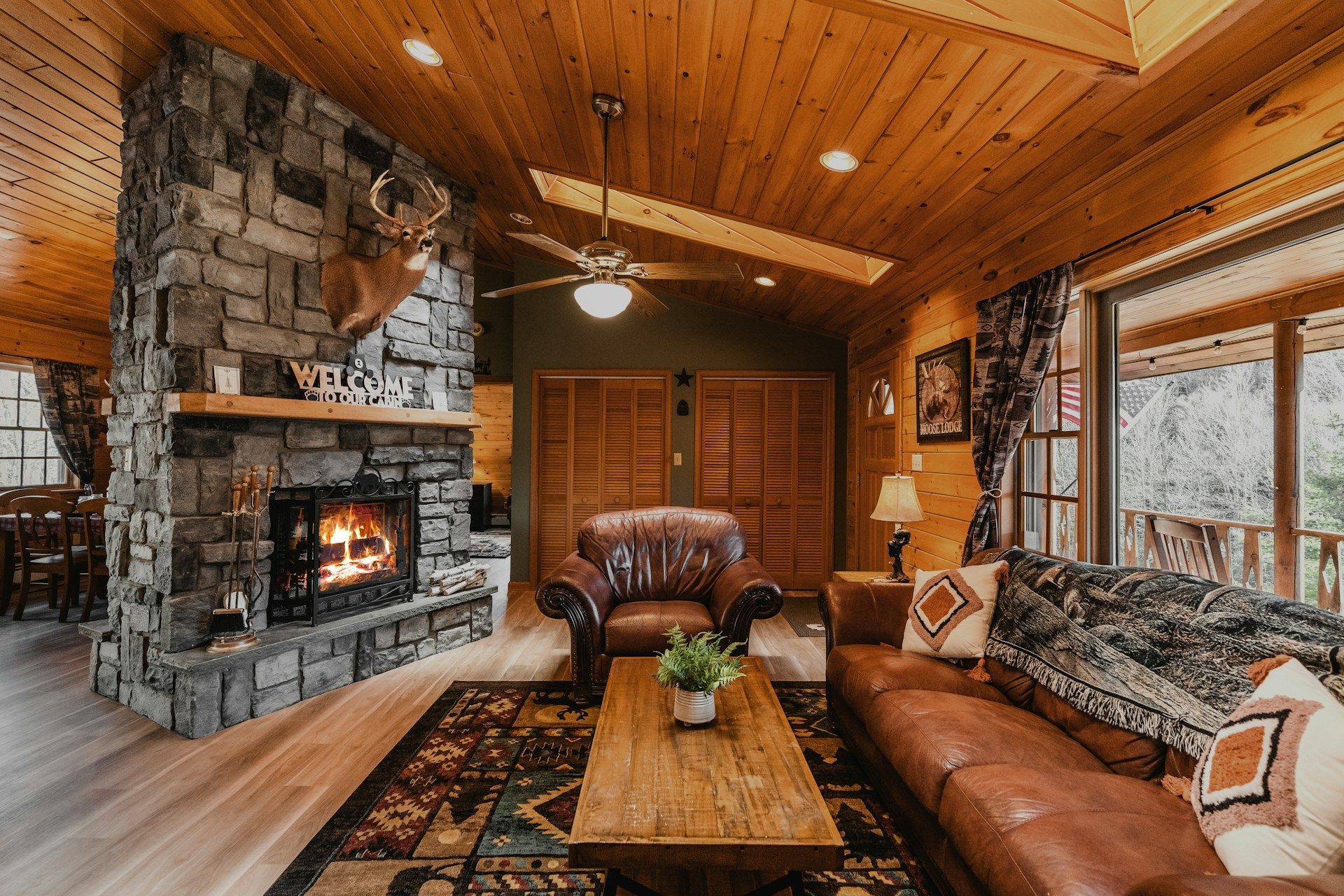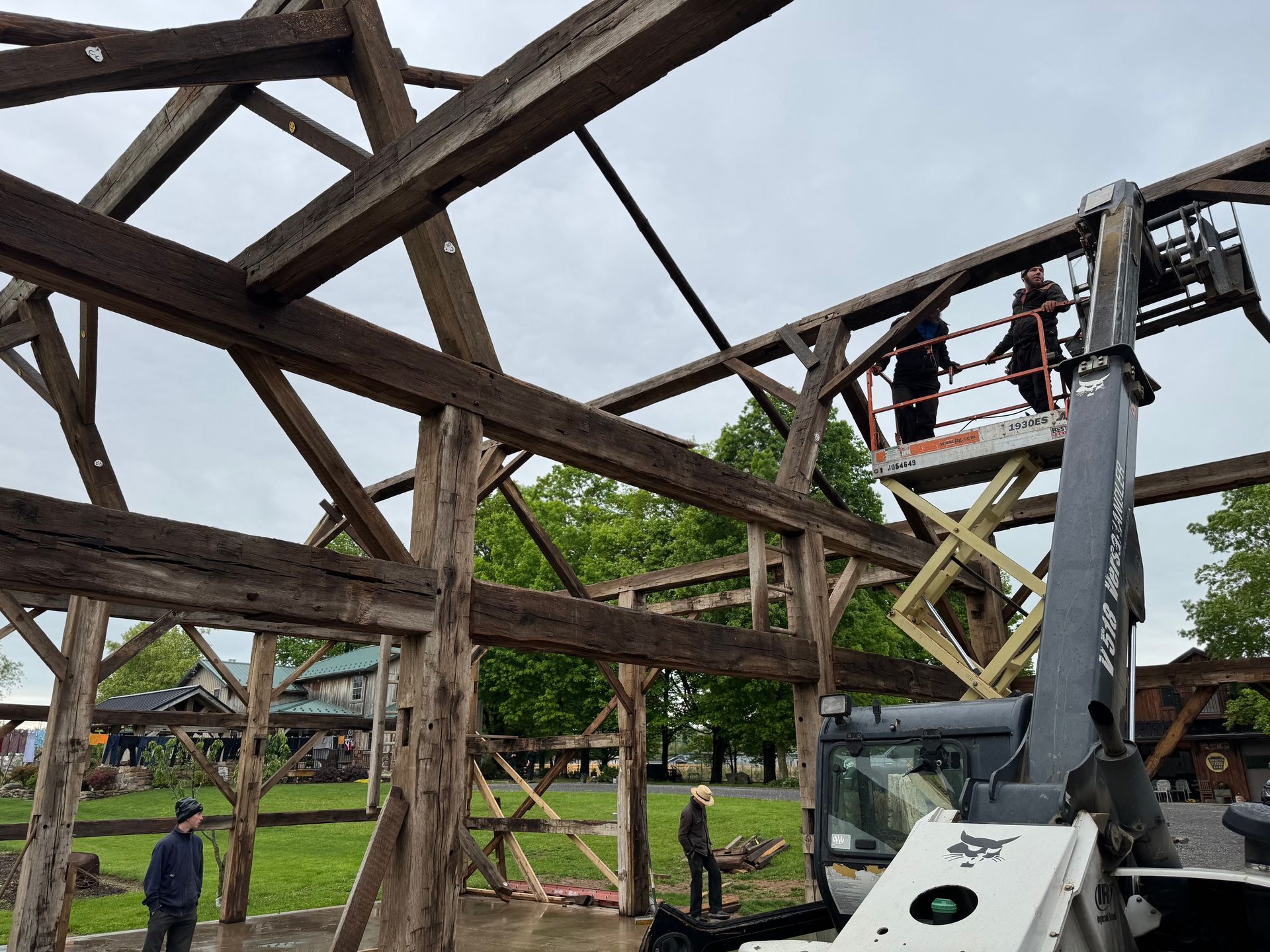How To Start A Wedding Venue With A Barn
How to Start a Wedding Venue: A Guide for Barn Owners
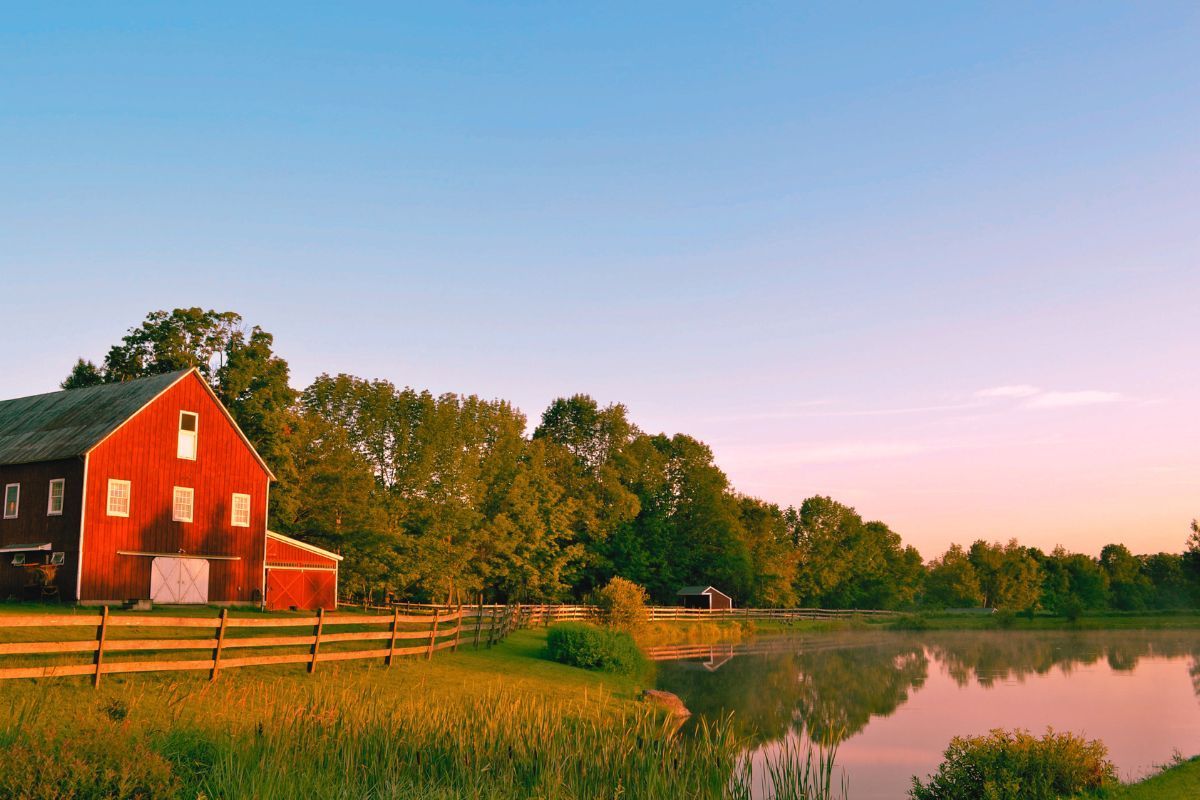
Starting a wedding venue with a barn is more than just a business decision; it's about creating a space where couples can celebrate one of the most important days of their lives. Barn venues have become incredibly popular because they offer that perfect blend of rustic charm and elegant possibilities.
If you're thinking about turning a barn into a wedding venue, you're looking at a rewarding venture! But how do you start? Read along.
Why Barn Wedding Venues Are So Popular
Couples today want something different from the traditional hotel ballroom. They're looking for character, authenticity, and Instagram-worthy backdrops. Barns deliver all of this naturally. The exposed beams, soaring ceilings, and weathered wood create an atmosphere that's both romantic and relaxed.
Plus, barn venues work for almost any wedding style, whether couples want full-on rustic with hay bales and mason jars, or elegant affairs with chandeliers and draped fabric.
The wedding industry has seen barn venues consistently rank among the top venue types for the past decade. They appeal to couples across different age groups and budgets, which means you'll have a broad potential customer base.
Understanding the Investment
Let's talk money first, because that's probably what you're wondering about. Starting a barn wedding venue isn't cheap, but it can be incredibly profitable if done right. Your initial investment will depend on several factors:
Property costs vary wildly depending on location. Rural areas obviously cost less than properties near major cities, but you'll need to balance affordability with accessibility. Couples will drive a bit for a beautiful venue, but not too far.
Renovation costs are where things get serious. If you already have a barn, you're looking at anywhere from $50,000 to $500,000+, depending on the condition and what you want to offer. A basic barn might just need structural reinforcement, weatherproofing, and basic amenities. A full conversion with bathrooms, a commercial kitchen, bridal suites, and climate control will cost significantly more.
Operational costs include insurance (which is substantial for event venues), utilities, maintenance, marketing, and staff. Many successful barn venues operate with a small core team and bring in additional help for events.
Finding the Right Barn Structure
Here's where your journey really begins, finding or creating the perfect barn structure for your venue. Not every barn is suitable for hosting weddings. You need to think about size, structural integrity, and that intangible quality that makes people say "wow" when they walk in.
The most successful wedding barn venues feature high ceilings (at least 20 feet), plenty of natural light, and strong architectural bones. Historic timber frame barns are particularly sought-after because of their authentic craftsmanship and stunning post-and-beam construction. These frames tell a story that modern construction simply can't replicate.
At Bay & Bent, we've spent years sourcing the finest historic barn frames from across the country. We carefully disassemble these structures, restore each timber at our facility, and can deliver them anywhere in the world.
If you're starting a wedding venue and want an authentic timber frame barn with genuine heritage and character, we specialize in finding frames that will become the centerpiece of your property. We handle everything from sourcing to delivery, ensuring you get a structure that's not only beautiful but also sound and ready for its next chapter. Learn more about our process and available frames.
Legal and Zoning Considerations
Before you get too far into planning, you need to tackle the less exciting but absolutely critical legal stuff. Zoning is the big one. Many rural properties are zoned agricultural, which doesn't automatically allow for commercial event venues. You'll need to:
- Check with your local planning department about commercial event venue zoning
- Understand if you need a conditional use permit or variance
- Research any restrictions on noise, lighting, parking, and operating hours
- Look into alcohol licensing requirements if you plan to serve or allow alcohol
Some areas have specific agritourism exemptions that can work in your favor. Others are more restrictive, especially if neighbors worry about traffic and noise. It's worth hiring a local attorney who specializes in land use to help navigate this process.
Building Codes and Safety Requirements
This is non-negotiable: your barn venue must meet building codes and safety requirements. This typically includes:
- Occupancy limits based on square footage and exit access. Building officials will determine how many guests you can safely host.
- Egress requirements mean you need proper exits, usually at least two, that are clearly marked and accessible.
- Fire safety is critical. You'll need fire extinguishers, possibly sprinkler systems, smoke detectors, and emergency lighting. Many venues also prohibit open flames or require flame-retardant decorations.
- Accessibility under the Americans with Disabilities Act (ADA) requires accessible parking, pathways, entrances, and restrooms. Even historic structures need to accommodate guests with disabilities.
- Electrical and plumbing must be up to code. You'll need adequate power for lighting, sound systems, catering equipment, and climate control. Commercial-grade bathrooms are essential; plan for at least one toilet per 50 guests as a starting point.
Essential Amenities and Features
Let's talk about what makes a barn venue actually functional for weddings. The bare minimum includes:
- Restrooms: Clean, attractive, climate-controlled bathrooms are non-negotiable. Many couples have walked away from otherwise perfect venues because of inadequate restroom facilities.
- Climate control: Depending on your location and target season, you may need heating, cooling, or both. Fans help, but often aren't enough during summer weddings.
- Lighting: Natural light is beautiful for daytime events, but you need excellent artificial lighting for evening receptions. A combination of ambient lighting, accent lighting for architectural features, and task lighting for dining creates the right atmosphere.
- Kitchen or catering area: Whether it's a full commercial kitchen or a prep space for outside caterers, you need somewhere for food service.
- Parking: Plan for at least one space per four guests, plus additional spaces for vendors. Grass parking works in good weather, but gravel or paved lots are more reliable.
- Getting-ready spaces: Separate areas for the wedding party to prepare are hugely valuable. These don't need to be elaborate; even simple rooms with good lighting and mirrors work.
Creating Multiple Revenue Streams
Smart venue owners don't rely solely on wedding income. Consider these additional revenue opportunities:
- Corporate events like holiday parties, retreats, and meetings can fill your calendar during weekdays and off-season months.
- Private parties for anniversaries, milestone birthdays, and family reunions typically have lower setup requirements than weddings.
- Photo shoots for engagements, family portraits, and even commercial photography can bring in income without the full event workload.
- Workshops and classes in everything from floristry to woodworking can utilize your space during slow periods.
- Elopement packages appeal to couples who want a barn setting without the full wedding production.
Marketing Your Barn Venue
Getting couples through your doors requires strategic marketing. Start building your presence at least six months before you're ready to host events:
- Website and SEO: Your website is your 24/7 salesperson. Invest in professional photography that showcases your barn in different seasons and setups. Include detailed information about capacity, amenities, pricing, and the booking process.
- Social media: Instagram and Pinterest are essential for wedding venues. Post consistently, share styled shoots, real weddings, behind-the-scenes content, and details of your barn's features.
- Wedding directories: List your venue on sites like The Knot, WeddingWire, and local wedding directories. These platforms drive significant traffic to new venues.
- Networking: Build relationships with wedding planners, photographers, caterers, and florists. These vendors influence where couples book their weddings.
- Open houses and styled shoots: Host events where vendors and potential clients can see your space. Styled shoots create gorgeous marketing content and build vendor relationships.
Pricing Your Venue
Venue pricing varies dramatically by location and offerings. Research comparable venues within a two-hour drive of your property. Consider:
- Base venue fee (typically $3,000-$15,000+ depending on location and market)
- Day-of coordination services
- Set-up and breakdown fees
- Rental items (tables, chairs, decorations)
- Extra hours beyond the standard rental period
- Rehearsal dinner or next-day brunch options
Many successful venues use tiered pricing, offering a basic package with just the space, then premium packages that include more services, rental items, and coordinator assistance.
Staffing Considerations
When you're starting out, you might handle most tasks yourself. As you grow, you'll need help with:
- Event coordination
- Set up and breakdown
- Maintenance and cleaning
- Grounds keeping
- Guest management during events
- Administrative tasks and booking inquiries
Many venues use a combination of part-time staff and a network of contractors who work events as needed. Having reliable people you can count on makes all the difference.
Insurance and Liability
Event venue insurance is expensive but absolutely necessary. You'll need:
- General liability insurance to cover injury or property damage. Most venues carry at least $1-2 million in coverage.
- Liquor liability if you provide alcohol or allow BYO alcohol.
- Property insurance for your buildings and any venue-owned items.
- Business interruption insurance protects your income if unexpected circumstances force you to cancel events.
- Many venue owners also require couples to carry event insurance and list the venue as additionally insured on their policy.
Building Vendor Relationships
Your vendor network can make or break your venue's success. Cultivate relationships with:
- Caterers who know your space and can work efficiently in your kitchen setup
- Rental companies for items you don't own
- Photographers and videographers who can showcase your venue beautifully
- Florists and decorators who understand your aesthetic
- Wedding planners who will recommend your venue to clients
Consider creating a preferred vendor list, but don't require couples to use specific vendors—that can be off-putting and may even have legal implications.
Managing the Business Side
Running a wedding venue is seasonal in most areas, which means managing cash flow carefully. You'll receive deposits months before events, but expenses are ongoing. Develop systems for:
- Contract management
- Payment processing and tracking
- Scheduling and booking
- Client communication
- Vendor coordination
- Inventory management
Many venues use specialized event management software that handles booking, contracts, payments, and client communication in one platform.
Preparing for Your First Season
Before you host your first wedding:
- Do a test run with friends or family to identify issues
- Finalize all safety inspections and permits
- Create detailed diagrams showing table layouts for different guest counts
- Document timing for setup and breakdown
- Build relationships with emergency vendors (backup generators, plumbers, electricians)
- Create an emergency plan for weather or other disruptions
- Train any staff thoroughly on customer service and venue policies
The Reality Check
Starting a barn wedding venue is incredibly rewarding, but it's also exhausting, especially during peak season. You'll work most weekends from spring through fall. You'll deal with demanding clients, weather disasters, vendor no-shows, and unexpected crises. You'll probably cry at least once during your first season.
But you'll also create magic. You'll watch couples say their vows surrounded by the timeless beauty of your barn. You'll see families celebrate together. You'll build something lasting that brings joy to your community.
If you love hospitality, have an eye for design, and don't mind hard work, a barn wedding venue can be an incredible business. Just go in with your eyes open, your finances in order, and a genuine passion for creating beautiful experiences.
The barn wedding venue industry continues to grow as couples seek authentic, unique spaces for their celebrations. With careful planning, solid business practices, and a beautiful barn structure as your foundation, you can build a thriving venue that couples will treasure for years to come.
